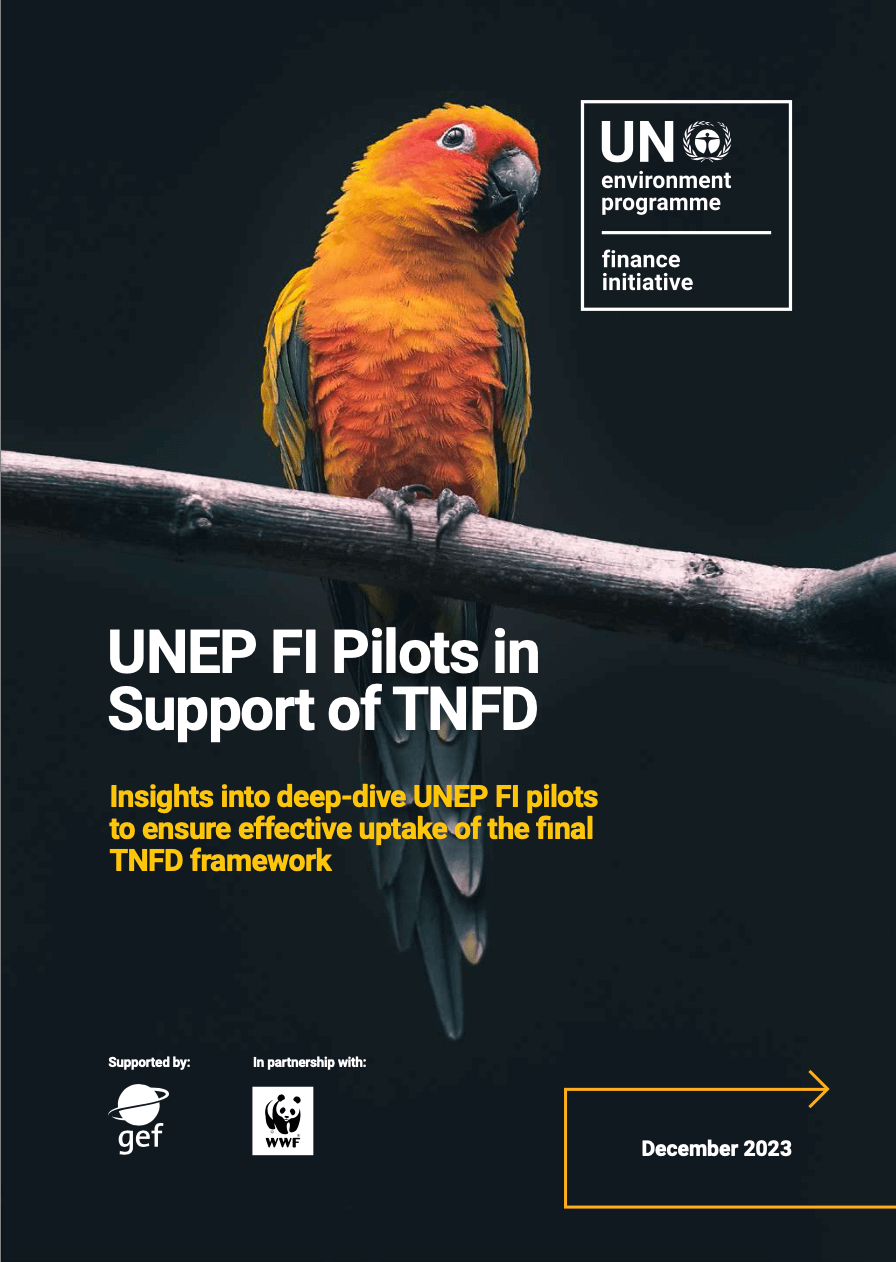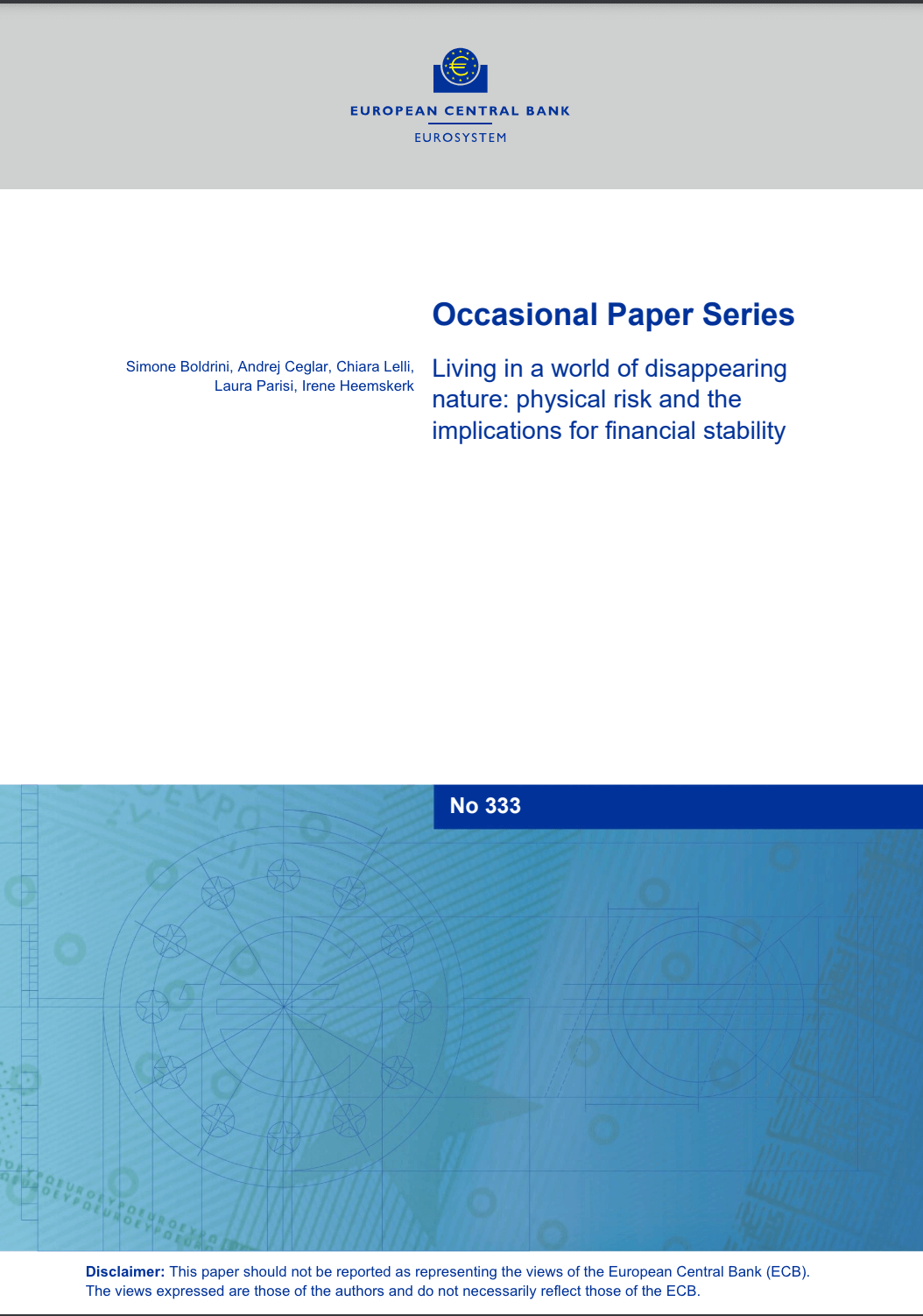Living in a world of disappearing nature: physical risk and the implications for financial stability
Detalles
A thriving nature provides many benefits that sustain human well-being and the global economy. Unfortunately, intensive land use, climate change, pollution, overexploitation, and other human pressures are rapidly degrading our natural resources. This loss of nature poses a serious risk to humanity, as it threatens vital areas, such as the supply of food and medicine. These threats are also existential to the economy and the financial system, as our economy cannot survive without nature.
The aim of this study is to raise awareness of nature-related risks by assessing the relationship between nature, our economy and euro area banks. To this end, the authors assess the dependence of euro area banks-financed non-financial corporations (NFCs) on nature and study the magnitude and likelihood of shocks caused by nature depletion, as well as the implications of the analysis for central banks.
The degradation of nature can harm production processes and consequently weaken the solvency of many NFCs. Central banks and supervisors must therefore understand the extent to which the economy and the financial system are vulnerable to this downgrade. This study analyses the nature dependence of more than 4.2 million individual non-financial corporations representing more than €4.3 trillion in loans to companies in the euro area. It assesses the extent to which NFCs and banks depend on the various benefits that humanity derives from nature in the form of ecosystem services. Examples of these services are the products we obtain from ecosystems, such as food, drinking water, wood and minerals, protection against natural hazards and the regulation of the local climate; and carbon capture and storage by vegetation.
The loss of biodiversity and the degradation of natural ecosystems pose a major threat to the wider economy and to financial stability that central banks and financial supervisors cannot ignore.
To better understand the implications of the degradation of nature and ecosystem services for financial stability, this study assesses the dependence of non-financial corporations and euro area banks on different ecosystem services.
The study develops a method to capture the sensitivity of banks' credit portfolio to possible future changes in the provision of ecosystem services. The results show that 75% of loans to companies in the euro area are highly dependent on at least one ecosystem service.
Loan portfolios may be significantly affected if the degradation of nature continues its current trend, with the greatest vulnerabilities concentrated in certain regions and economic sectors.
Recursos relacionados

Insights into UNEP FI’s TNFD pilots
This report describes the valuable insights gained and significant findings derived from a global pilot project initiated by UNEP FI…

SeloVerde-MG: science and technology in support of agricultural transparency and traceability in Minas Gerais
This presentation gathers information on the SeloVerde platform, which seeks to combat deforestation in supply chains, by providing verification of…

TNFD draft sector guidance
TNFD is developing sectoral guidelines to provide guidance on the implementation of the LEAP approach, including specific metrics for the…


